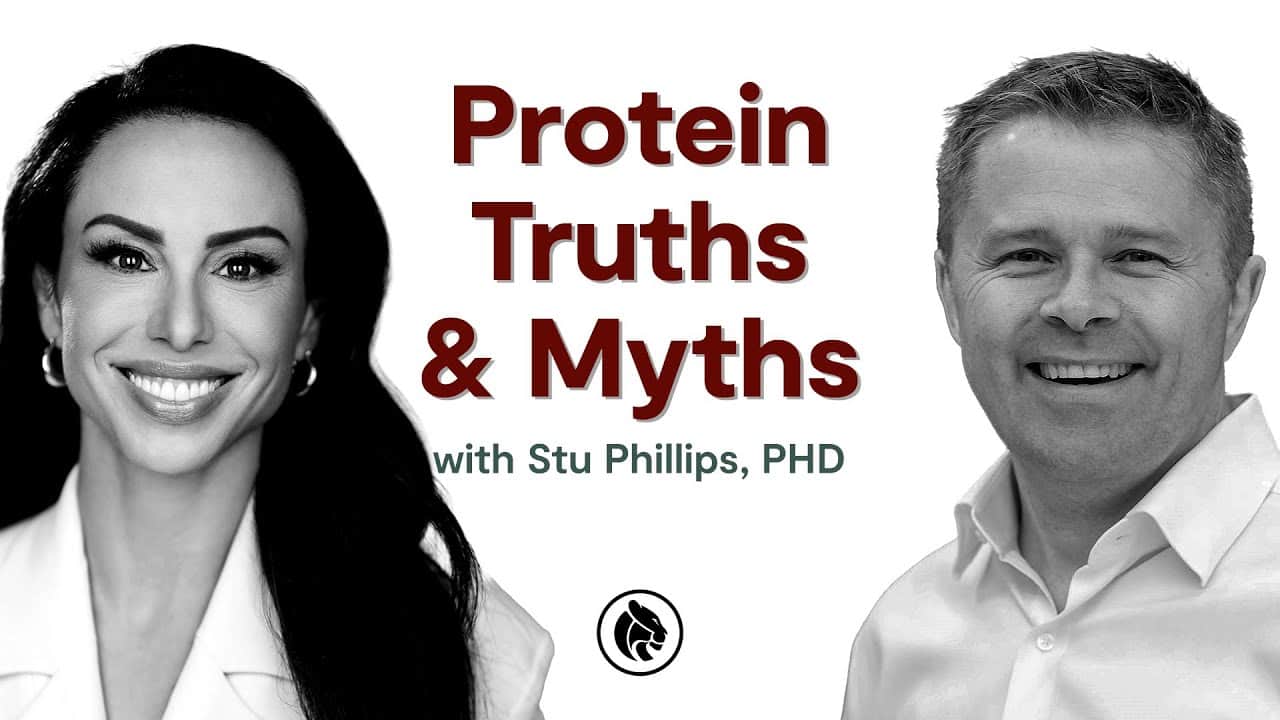Summary:
– There is a widespread belief that high protein intake can cause cancer and accelerate aging.
– The truth is protein is essential to our body and has numerous benefits.
– Consuming meat and animal products in moderation is not harmful, as opposed to an excessive amount, which may cause health problems.
– The type of protein you consume and how you cook it also plays a pivotal role in the risk of cancer and aging.
– The best way to optimize protein intake is to consume various sources rich in high-quality protein.
Protein is one of the most essential nutrients for our body. It plays a vital role in building and repairing muscles, bones, and other tissues. However, in recent years, there has been a widespread belief that high protein intake can cause cancer and accelerate aging. This notion has been fueled by several scientific studies and the rise of the vegan movement, but is protein all that bad? This article will explore the protein truths and myths surrounding cancer and aging.
Myth: High protein intake causes cancer
Over the years, numerous studies have claimed that high protein intake, particularly from animal products, can increase the risk of cancer. A recent study found that a high-dairy diet was associated with an increased risk of prostate cancer. However, it’s essential to note that a high intake of red meat, processed meat, or dairy products doesn’t necessarily mean that these foods directly cause cancer.
The type of protein and the way it’s cooked may play a role in cancer development. For example, processed meat such as bacon, sausage, or hot dogs is typically high in salt and unhealthy fats, increasing cancer risk. On the other hand, consuming lean meat and fish in moderation may reduce the risk of cancer. Moreover, grilling meat at high temperatures can cause the formation of chemicals called heterocyclic amines, which may increase the risk of cancer.
Truth: Protein has numerous health benefits
Despite the negative connotation surrounding high protein intake, protein is essential to our body and provides numerous health benefits. A diet high in protein has been found to promote weight loss, increase muscle mass, and reduce the risk of chronic diseases such as diabetes and heart disease. A study found that a high-protein diet reduced body weight, blood pressure, and triglyceride levels, significant risk factors for heart disease.
Protein also plays a crucial role in building and repairing our body, particularly during exercise or strenuous activity. Consuming protein-rich foods after a workout or physical activity can help repair and build muscle tissue, leading to a quicker recovery. Additionally, adequate protein can help prevent age-related muscle loss, possibly leading to frailty and disability in older adults.
Myth: High protein intake accelerates aging
Another popular belief surrounding high protein intake is that it can accelerate aging. Recent studies have suggested that high protein intake can activate the mTOR pathway, which is associated with aging in some studies. However, it’s essential to note that this association doesn’t prove causation.
Researchers have found that a high-protein diet may help prevent sarcopenia, commonly associated with aging, where people lose muscle mass. Moreover, a low-protein diet is linked to a higher risk of frailty in older adults. Avoiding protein could lead to muscle loss and early aging.
Truth: Variety and the quality of protein matters
The type and quality of protein you consume are crucial in achieving optimal health. A protein plant-based diet can provide all the protein your body needs without the harmful health effects of high meat intake. Legumes such as beans, lentils, and chickpeas are excellent protein sources, high in fiber, and rich in vitamins and minerals, making them a healthful choice.
In conclusion, high protein intake has numerous benefits, such as promoting weight loss and muscle mass and reducing the risk of chronic diseases. Meats and dairy are not inherently harmful in moderation, but being careful about the type of protein consumed and how it is prepared is crucial. Various protein sources, such as plant-based diets and high-quality meats, are the best way to optimize intake and minimize the risk of cancer and aging. Remember, moderation is essential; a balanced diet with enough protein can lead to optimal health.
*****
Source Description
Stuart Phillips is a Tier 1 Canada Research Chair in Skeletal Muscle Health. He is also the Director of the McMaster University Physical Activity Centre of Excellence. Dr. Phillips has authored more than 350 research papers. In 2018-21 he was named to Clarivate’s Highly Cited Researchers list as being in the top 1% of all cited researchers in nutrition and physiology research. Dr. Phillips is a fellow of the American College of Sports Medicine and the Canadian Academy of Health Sciences.
In this episode, we discuss the following:
• Do higher protein diets cause cancer?
• How the food industry pushes flavor instead of nutrients
• The surprising data about Omega-3 supplementation
• The importance of protein in aging
This episode is brought to you by InsideTracker and 1stPhorm
Follow Stu on Instagram: https://www.instagram.com/mackinprof
Follow Stu on Twitter: http://twitter.com/mackinprof
Read Stu’s Publications: https://scholar.google.ca/citations?user=VLu9hqgAAAAJ&hl=en
Stu’s Protein Metabolism Research Lab: https://goo.gl/k4x9Xv
Subscribe to the Dr. Gabrielle Lyon Show Podcast
Apple Podcasts: https://apple.co/3bdNr2h
Spotify: https://spoti.fi/39RC7Zk
Google Podcasts: https://bit.ly/3HLxlcz
Say hi on social:
Instagram: https://www.instagram.com/drgabriellelyon/
Sign up for my weekly newsletter:
https://www.drgabriellelyon.com
New patient inquiries:
https://drgabriellelyon.com/contact-us/
Get 20% Off the entire Inside Tracker store: http://www.insidetracker.com/drlyon
Visit 1st Phorm Website for Great Deals
http://www.1stphorm.com/drlyon
*Affiliate Disclaimer:
Note that this description contains affiliate links that allow you to find the items mentioned in this video and support the channel at no cost. While this channel may earn minimal sums when the viewer uses the links, the viewer is not obligated to use these links. I appreciate your support!
Disclaimer: The Dr. Gabrielle Lyon Podcast and YouTube are for general information purposes only and do not constitute the practice of medicine, nursing, or other professional health care services, including the giving of medical advice, and no doctor/patient relationship is formed. The use of information on this podcast, YouTube, or materials linked from this podcast or YouTube is at the user’s own risk. The content of this podcast is not intended to be a substitute for professional medical advice, diagnosis, or treatment. Users should not disregard or delay in obtaining medical advice for any medical condition they may have. They should seek the assistance of their healthcare professional for any such conditions.


